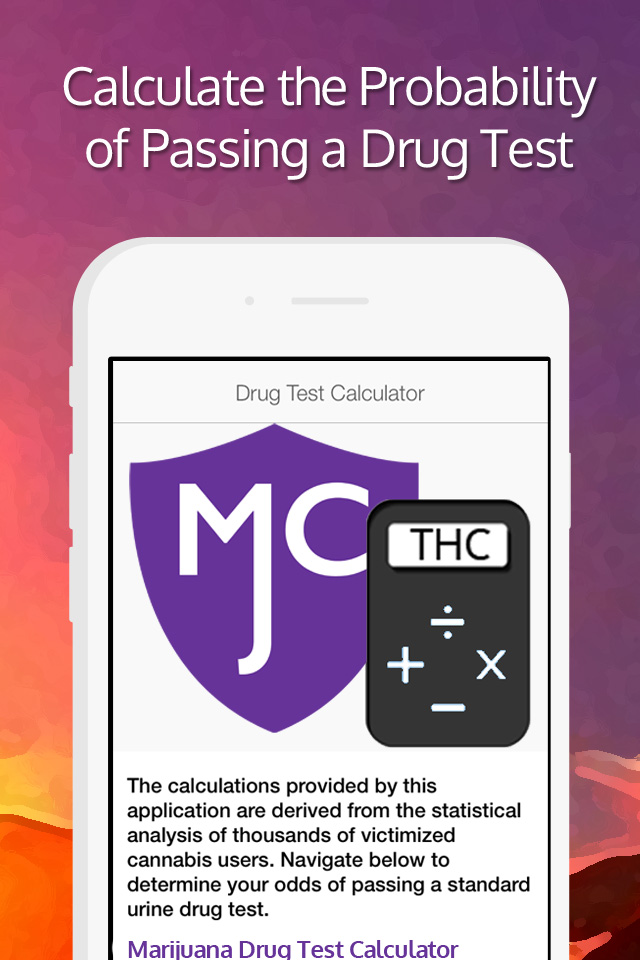Cannabis Impact on Mental Health
Hello, and welcome to our article on the impact of cannabis on mental health. At first glance, this topic may seem straightforward, but there’s much more to it than meets the eye. Through extensive research and evidence, we have uncovered a complex relationship between cannabis use and mental health. It’s crucial that we delve into the potential impacts and benefits of cannabis on our overall well-being.
Before we explore further, let’s understand what cannabis is and how it affects the brain. By gaining a comprehensive understanding of the subject, we can decipher the intricate connection between cannabis and mental health conditions.
Key Takeaways:
- Cannabis use has a complex impact on mental health.
- Understanding the potential benefits and risks is crucial.
- Research suggests a link between cannabis and mental health conditions.
- Different individuals may experience varied effects of cannabis use.
- Further research is needed to fully comprehend the relationship.
What is Cannabis?
Cannabis, also known as marijuana or weed, is an illegal drug that can produce various effects on the mind and body. It is derived from the Cannabis sativa plant and contains different compounds called cannabinoids. The main active ingredient in cannabis is delta-9-tetrahydrocannabinol (THC), which is responsible for its psychoactive effects.
People consume cannabis in different forms, including smoking, vaporizing, or consuming edibles. It can create feelings of relaxation, euphoria, and altered perception of time. However, it can also have negative effects, such as anxiety, paranoia, and impaired coordination.
The Different Types of Cannabis
There are various strains and types of cannabis, each with its own characteristics. The two main categories are Cannabis indica and Cannabis sativa. Indica strains are known for their relaxing and sedating effects, often referred to as “couch-lock.” Sativa strains, on the other hand, are more energizing and can enhance creativity and focus.
| Strain | Characteristics |
|---|---|
| Skunk | A strong and potent strain with a high THC content. It is known for its pungent smell and can produce intense psychoactive effects. |
| Haze | A sativa-dominant strain that offers a euphoric and uplifting experience. It is often used to combat fatigue and enhance mood. |
| Kush | An indica-dominant strain that provides deep relaxation and pain relief. It can induce a state of relaxation and sedation. |
The Legal Status of Cannabis
The legal status of cannabis varies from country to country and even within different states or regions. In some places, it is completely legal for both medical and recreational use, while in others, it remains illegal. It is important to be aware of the legal implications and regulations regarding cannabis use in your area.
How Does Cannabis Affect the Brain?
When it comes to understanding the effects of cannabis on the brain, it’s important to consider how this substance interacts with our body’s systems. Cannabis, when smoked, enters the bloodstream and binds to receptors in the brain. These receptors, known as nerve endings, play a crucial role in regulating mood and behavior. On the other hand, when cannabis is consumed orally, it takes longer to feel the effects as it goes through the stomach and liver.
Cannabis contains various cannabinoids, with the main active ingredient being THC. THC is responsible for the psychoactive effects of cannabis, influencing mood and behavior. When THC binds to the receptors in the brain, it can produce a range of effects, from relaxation and increased sociability to changes in mood, memory loss, and even hallucinations. It’s important to note that the specific effects of cannabis can vary from person to person.
Understanding how cannabis affects the brain is key to gaining insight into its potential impact on mental health. By studying its interactions with the body’s receptors, we can gain a better understanding of the link between cannabis, mood, and behavior. Further research is needed to fully comprehend the short- and long-term effects of cannabis use on mental well-being and overall brain function.

The Effects of Cannabis on the Brain – Summarized
- Cannabis enters the bloodstream when smoked and binds to receptors in the brain, affecting mood and behavior.
- THC, the main active ingredient in cannabis, is responsible for the psychoactive effects.
- Orally consumed cannabis takes longer to take effect as it travels through the stomach and liver.
- Cannabis can produce a range of effects, from relaxation and increased sociability to changes in mood, memory loss, and hallucinations.
- Individual experiences with cannabis can vary, and more research is needed to fully understand its impact on mental health.
The Effects of Cannabis on Mental Health
When it comes to cannabis use and mental health, the effects can vary greatly from person to person. While some individuals may experience pleasant effects such as happiness, relaxation, and increased sociability, others may encounter unpleasant effects including hallucinations, changes in mood, memory loss, paranoia, and depersonalization. It’s important to note that these effects can be influenced by various factors such as the type and potency of cannabis used, the individual’s tolerance, and their mental health history.
Regular and long-term use of cannabis can have negative consequences on mental health. Impaired concentration, slurred speech, sleep disturbances, and depression are some of the potential outcomes of prolonged cannabis use. Additionally, research suggests that there may be an increased risk of developing mental illnesses such as psychosis in individuals who heavily use cannabis. It’s crucial to recognize that not everyone who uses cannabis will develop these mental health conditions, but the risk may be heightened for some individuals.
It is also worth noting that the relationship between cannabis and mental health is complex and requires further study. The use of stronger forms of cannabis, such as skunk, has been associated with a higher risk of mental health issues. However, more research is needed to fully understand the specific mechanisms and factors contributing to these effects.

Overall, it is important to approach cannabis use with caution and be mindful of its potential impacts on mental health. If you are experiencing any negative effects or concerns, it is recommended to seek help and support from a healthcare professional or specialist mental health service. They can provide guidance, offer treatments, or refer you to appropriate resources that can assist in managing the potential mental health effects of cannabis use.
Is Cannabis Addictive?
One of the important considerations when discussing cannabis is its potential for addiction. While not everyone who uses cannabis will develop an addiction, it is estimated that about 1 in 10 regular users become dependent on it. Cannabis addiction is characterized by developing tolerance to the drug, meaning that higher doses are needed to achieve the same effect. However, it’s crucial to remember that addiction risk can vary between individuals, depending on factors such as genetics, frequency of use, and overall mental health.
When someone stops using cannabis after prolonged and heavy use, they may experience withdrawal symptoms. These symptoms can include irritability, cravings, sleep problems, loss of motivation, and mood swings. It’s important to note that withdrawal symptoms can vary in intensity and duration from person to person. It is recommended to seek professional support if you or someone you know is struggling with cannabis addiction or experiencing withdrawal symptoms.
It’s worth mentioning that smoking cannabis along with tobacco increases the risk of nicotine addiction and associated health issues. The combination of cannabis and tobacco can have a compounding effect on addiction potential and may result in a more challenging recovery process. Therefore, it is essential to be aware of these risks and make informed choices when considering cannabis use.
The Impact of Cannabis Addiction
Cannabis addiction can have a significant impact on various aspects of a person’s life. It can affect relationships, work or academic performance, and overall mental well-being. In some cases, individuals may find it difficult to control their cannabis use, leading to disruptions in personal and professional obligations. Seeking help and support from medical professionals, therapists, and support groups can be crucial in addressing addiction and its associated challenges.
Table: Cannabis Addiction Treatment Options
| Treatment Option | Description |
|---|---|
| 1. Medical Intervention | Medical professionals can provide guidance, offer treatments, and prescribe medications to assist with cannabis addiction management. |
| 2. Therapy | Therapists experienced in addiction treatment can provide counseling and support to address the underlying causes of cannabis addiction. |
| 3. Support Groups | Organizations such as Marijuana Anonymous UK offer support groups where individuals with cannabis addiction can connect, share experiences, and work towards recovery together. |
| 4. Specialist Drug Services | Specialist drug services can provide comprehensive support, including counseling, therapy, and harm reduction strategies. |
It is important to remember that seeking help and support for cannabis addiction is a courageous step towards a healthier and more fulfilling life. With the right resources and professional assistance, it is possible to overcome addiction and regain control.
The Link Between Cannabis and Mental Illness
Research suggests a correlation between cannabis use and an increased risk of developing mental illnesses, particularly psychosis, schizophrenia, and bipolar disorder. Regular cannabis use can also contribute to anxiety and depression, although the relationship is not fully understood. Some studies indicate that stronger forms of cannabis, such as skunk, may pose a higher risk for these mental health conditions. It is essential to note that not everyone who uses cannabis will develop mental illness, and other factors, such as genetic vulnerability, contribute to the risk.

Studies have shown that cannabis use can have a detrimental effect on mental health. One study found that individuals who used cannabis regularly during their teenage years had an increased risk of developing psychosis later in life. Another study suggested that cannabis use could trigger the onset of schizophrenia in individuals who are already predisposed to the condition. These findings highlight the need for further research to fully understand the relationship between cannabis and mental illness.
The effects of cannabis on anxiety and depression are also a topic of interest. While some individuals may use cannabis to temporarily alleviate symptoms of anxiety or depression, long-term use can actually worsen these conditions. It is believed that the main psychoactive component of cannabis, THC, may disrupt the natural balance of chemicals in the brain that regulate mood and emotions. However, more research is needed to understand the mechanisms behind this relationship.
In conclusion, while cannabis may have some potential therapeutic benefits, its use also carries risks, particularly in relation to mental health. Individuals should be aware of the potential link between cannabis use and mental illness, as well as the impact it can have on anxiety and depression. It is important to approach cannabis use with caution and to seek professional guidance if experiencing any negative effects on mental well-being. Continued research will contribute to a better understanding of these complex relationships and help inform evidence-based approaches to cannabis use.
Cannabis and Schizophrenia

The relationship between cannabis use and the development of schizophrenia is a topic that has received significant attention in the field of mental health research. Numerous studies have indicated a link between cannabis consumption and an increased risk of developing psychosis and schizophrenia, particularly in individuals who are genetically predisposed to these conditions.
Research has shown that cannabis use can have an impact on the onset and progression of schizophrenia. It has been found that cannabis use can potentially trigger the onset of psychosis in individuals who are vulnerable to developing schizophrenia. Additionally, cannabis use can exacerbate symptoms in individuals who have already been diagnosed with schizophrenia, leading to increased severity and frequency of psychotic episodes.
While the exact mechanisms through which cannabis affects the development of schizophrenia are not yet fully understood, it is believed that the psychoactive compound THC plays a significant role. THC has been shown to disrupt normal brain functioning and can lead to changes in neurotransmitter activity, which may contribute to the development of psychotic symptoms.
The Role of Genetic Predisposition
Genetic factors also play a crucial role in the relationship between cannabis and schizophrenia. Individuals with a family history of schizophrenia or a genetic predisposition to the condition may be more susceptible to the effects of cannabis. It is theorized that certain genetic variations may make individuals more vulnerable to the psychotogenic effects of cannabis, increasing their risk of developing schizophrenia.
| Study | Findings |
|---|---|
| Study 1 | Found a significant association between cannabis use and increased risk of developing schizophrenia, particularly in individuals with a family history of the disorder. |
| Study 2 | Reported that individuals with specific genetic variations were more likely to experience psychotic symptoms after cannabis use. |
| Study 3 | Identified a gene-environment interaction, suggesting that individuals with a genetic predisposition and cannabis use have a higher risk of developing schizophrenia compared to those without the genetic vulnerability. |
It is important to note that not everyone who uses cannabis will develop schizophrenia, and other factors such as frequency and duration of use, as well as individual susceptibility, may influence the risk. However, the growing body of evidence linking cannabis use to schizophrenia highlights the need for further research and increased awareness of the potential risks associated with cannabis consumption, particularly for individuals at higher genetic risk.
Seeking Help for Cannabis and Mental Health Issues
When it comes to addressing the impact of cannabis on mental health, it is crucial to seek help and support. We understand that navigating this topic can be overwhelming, but you don’t have to face it alone. If you find that your cannabis use is affecting your mental well-being, reaching out for assistance is an important step towards finding the support you need.
Start by talking to your general practitioner (GP). They can provide valuable guidance and offer treatments tailored to your specific situation. Your GP may also refer you to a specialist mental health service, where you can access more specialized care and support.
Local drug treatment support services can also be a valuable resource. They offer counseling, support groups, and advice to help reduce cannabis use and address its impact on various areas of your life. These services are often equipped with professionals who understand the complex relationship between cannabis and mental health and can offer tailored assistance.
Remember, seeking help is a sign of strength. Your mental well-being matters, and there are professionals ready to support you on your journey towards improved mental health. Don’t hesitate to reach out and take the first step towards a healthier and happier life.
The Importance of Seeking Help
Seeking help for cannabis use and its impact on mental health is vital for several reasons:
- Expert Guidance: Medical professionals and mental health specialists have the knowledge and experience to guide you through your concerns and provide evidence-based treatments.
- Tailored Treatment Options: Every individual’s situation is unique. Seeking help from professionals ensures that you receive personalized treatment options that address your specific needs.
- Access to Support: Support groups and counseling services can provide you with a community of individuals facing similar challenges. Connecting with others who understand your experiences can be incredibly beneficial.
- Addressing Underlying Issues: Cannabis use may be a way of coping with underlying mental health issues. Seeking help allows you to address these root causes and develop healthier coping strategies.
“Seeking help is a sign of strength. Your mental well-being matters, and there are professionals ready to support you on your journey towards improved mental health.”
Take the First Step
If you’re ready to seek help for cannabis use and its impact on your mental health, here are a few steps you can take:
- Make an appointment with your GP to discuss your concerns and explore treatment options.
- Research local drug treatment support services in your area and reach out to them for counseling and support.
- Consider joining a support group or seeking therapy to help address underlying mental health issues.
- Remember, reaching out for help is a courageous step towards a healthier and happier future.
Your well-being is important. Don’t hesitate to seek the support you deserve. We’re here for you every step of the way.
Table: Resources for Seeking Help
| Resource | Description |
|---|---|
| General Practitioner (GP) | Your primary care doctor can assess your situation and provide guidance and treatment options, as well as refer you to mental health specialists if needed. |
| Specialist Mental Health Service | These services offer specialized care and support for individuals facing mental health challenges, including those related to cannabis use. |
| Local Drug Treatment Support Services | Counseling, support groups, and advice are available through these services to help you reduce cannabis use and address its impact on your life. |
| Therapists and Support Groups | Therapy and support groups, such as Marijuana Anonymous UK, can provide a supportive community and help address underlying issues associated with cannabis use. |
Therapy and Support for Cannabis Use
Dealing with cannabis use and its impact on mental health can be challenging, but there is help available. Seeking therapy can be a valuable step in understanding the underlying reasons behind drug use, including cannabis. Different types of therapy, such as Cognitive Behavioral Therapy (CBT), have been found to be effective in addressing drug misuse alongside common mental health problems like depression and anxiety. A therapist can provide you with the tools and strategies to manage cravings, develop healthier coping mechanisms, and work towards positive change.
Support groups can also play a crucial role in your journey towards recovery. Connecting with others who have similar experiences can provide validation, understanding, and a sense of community. Support groups like Marijuana Anonymous UK offer a safe space to share your struggles, gain insights from others, and receive encouragement. Being part of a support group can remind you that you are not alone and provide additional motivation and accountability.
Additionally, specialist drug services can provide comprehensive support tailored to your specific needs. These services often offer a range of resources, including counseling, education, harm reduction strategies, and referrals to other healthcare professionals if necessary. By engaging with a drug service, you can access personalized support from experts who understand the complexities of cannabis use and its impact on mental health. Remember, reaching out for help is a sign of strength, and there are dedicated professionals ready to support you through your journey of recovery.
Your Path to Recovery
When it comes to cannabis use and mental health, it’s essential to remember that recovery is a process. It may involve ups and downs, setbacks, and successes. Everyone’s journey is unique, and it’s important to find the support and resources that work best for you. Alongside therapy, support groups, and specialist services, consider implementing self-care practices, such as exercising regularly, getting enough sleep, eating a balanced diet, and engaging in activities that bring you joy. Remember, you deserve to lead a fulfilling and healthy life, and with the right support, you can overcome the challenges and reclaim your well-being.
| Support Resources | Contact Information |
|---|---|
| General Practitioner (GP) | Contact your local GP for guidance and support. |
| Specialist Mental Health Service | Ask your GP for a referral or search online for services in your area. |
| Local Drug Treatment Support Services | Contact your local drug treatment support services for counseling, support groups, and advice. |
| Marijuana Anonymous UK | Visit their website at https://marijuana-anonymous.org.uk/ for more information and resources. |
Conclusion
The relationship between cannabis and mental health is a topic that requires careful consideration. Research has provided some insights into the potential impacts of cannabis on our mental well-being. While studies suggest a link between cannabis use and certain mental health problems, such as psychosis and schizophrenia, it’s important to note that not everyone who uses cannabis will develop these conditions.
When evaluating the relationship between cannabis and mental health, we must take into account individual factors and genetic vulnerabilities. Access to support and treatment also plays a crucial role. Seeking help and guidance from healthcare professionals, such as general practitioners or specialist mental health services, can provide the necessary support for those experiencing adverse effects on their mental health due to cannabis use.
As we continue to explore the impacts of cannabis on mental health, further research is needed to fully understand the short- and long-term consequences. By expanding our knowledge in this area, we can improve our understanding of how cannabis affects mental well-being and provide better support and treatment for those who may be impacted.
FAQ
What are the potential impacts of cannabis on mental health?
Cannabis use has been linked to various mental health conditions such as psychosis, schizophrenia, bipolar disorder, anxiety, and depression. However, it’s important to note that not everyone who uses cannabis will develop these conditions, and individual factors and genetic vulnerabilities play a role.
What is cannabis?
Cannabis, also known as marijuana or weed, is an illegal drug that contains the chemical THC, which alters mood and behavior.
How does cannabis affect the brain?
When cannabis is smoked or consumed orally, it enters the bloodstream and affects the brain by binding to receptors. These receptors influence mood and behavior, leading to varying effects on individuals.
What are the effects of cannabis on mental health?
Cannabis can have both pleasant and unpleasant effects. Some people may experience feelings of happiness, relaxation, and increased sociability, while others may encounter hallucinations, changes in mood, memory loss, paranoia, and depersonalization.
Is cannabis addictive?
Yes, cannabis can be addictive. Regular use can lead to dependence, tolerance, and withdrawal symptoms such as irritability, cravings, sleep problems, loss of motivation, and mood swings. Smoking cannabis with tobacco increases the risk of nicotine addiction and associated health issues.
What is the link between cannabis and mental illness?
Research suggests a correlation between cannabis use and an increased risk of developing mental illnesses such as psychosis, schizophrenia, bipolar disorder, anxiety, and depression. However, it’s important to consider individual factors and genetic vulnerabilities when examining this relationship.
How does cannabis relate to schizophrenia?
There is a complex relationship between cannabis and schizophrenia. Some evidence suggests that cannabis use can increase the risk of developing schizophrenia, particularly in individuals with genetic predispositions. Cannabis can also exacerbate symptoms in those already diagnosed with schizophrenia.
Where can I seek help for cannabis and mental health issues?
If cannabis use is affecting your mental health, it’s important to seek help from your general practitioner (GP), who can provide guidance, offer treatments, or refer you to a specialist mental health service if necessary. Local drug treatment support services can also offer counseling, support groups, and advice.
What support is available for addressing cannabis use?
Seeing a therapist can be beneficial in understanding the underlying reasons for drug use, including cannabis. Different types of therapy, such as Cognitive Behavioral Therapy (CBT), can be effective in addressing drug misuse alongside common mental health problems like depression and anxiety. Additional support can be found through specialist drug services and support groups like Marijuana Anonymous UK.
What is the conclusion regarding cannabis and mental health?
The relationship between cannabis and mental health is complex and requires further research. While there is evidence linking cannabis use to mental health issues, not everyone who uses cannabis will develop these conditions. Understanding individual factors, genetic vulnerabilities, and accessing support and treatment are crucial when examining the impact of cannabis on mental health.













